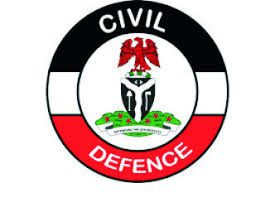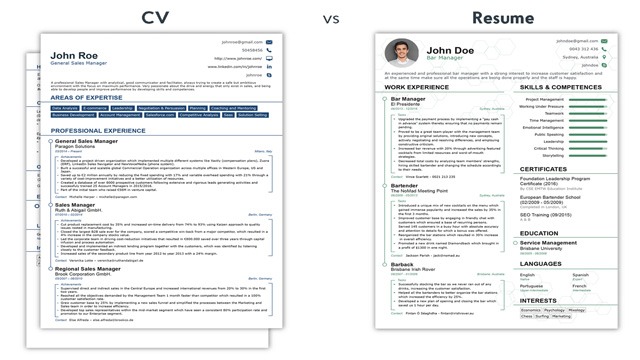To apply for a job, most often you are required to submit a Cover Letter for a Job Application. The question most people often ask is “How important is a cover letter to a Job Application?” The Answer is Cover Letter is as important as your resume, in some cases your cover letter may make the difference when your resume has been ignored. A strong Cover letter strengthens a weak resume or Support an average resume. It explains your qualifications better and helps your employer notice your application.
Therefore it’s advisable to devote the necessary time and effort in writing a powerful cover letter that will end up getting you to the interview phase. Be very strategic in personalizing your cover letter so as to show your employer how solid and suitable you are for the position you are applying for.
To start writing a cover letter that makes your application noticeable, here are all the necessary details.
Carefully follow these tips to understand how to write a professional cover letter.
Read >>> HOW TO WRITE A COVER LETTER FOR GRADUATE JOBS
What Is a Cover Letter?
First, it’s important to understand what a cover letter is before you start writing.
Secondly, get to familiarize yourself with the purpose of this document. This will help you when targeting. We will discuss this later.
A cover letter provides additional details on your skills and experience, it is a document sent along with your resume that provides your employers with detailed information about your qualification for the job you are applying for.
A cover letter is not a repetition of your resume rather it includes a piece of specific information describing why you are a strong match for the employer’s job requirements.
Your cover letter is meant to convey more personality on the facts that have been laid out by your resume
Finally, see a cover letter as a sales pitch that will sell your credentials and help you get to the interview level.
Structure of a Cover Letter
These are the list of the outline of items that should be included.
Header
The Header should contain your contact information including that of the employer.
Your Contact Information should include the following
- First and Last Name• Street Address
- City, State Zip
- Phone
- Followed by the date.
- Job Position
- Next, after the Header is the Job Position you are applying for. This usually takes a line just below the date.
- You can also choose to do this in the opening paragraph
Salutation
Most times when writing a cover letter, the salutation is usually an issue because we often don’t know who is receiving it. Therefore it is advisable to use “Dear Hiring Manager.” Or “Dear Employer” This is better and sounds polite when compared to the formal “To Whom It May Concern.”
Introduction
Start your introduction by stating the Job Position you are applying for. Give details on where you got the vacancy information, briefly describe how your skills and experience fit into what the company is looking out for. This is to help your reader get a preview of your qualification. You can completely win the heart of your employer through your Introduction.
Body
Here you need to showcase and explain in details, sell yourself by demonstrating your interest, work experience, education and skills, giving your employer some insight into your personality and work style and why your application should be considered relevant to the position and description of the Job.
Closing
In the closing part, ensure to restate how your skills make you a strong match for the company and/or position. Summarize why you like to work for their company.
Closing Signature
Complimentary Closure is used to close a cover letter, compliment such as Sincerely, Truly, Faithfully. Though you are advised to stick with sincerely as this sound more official and formal than others. Then your signature (when it is handwritten), you’re your Name just as it is at the header and contact information.
Format Your Cover Letter for Job Application
You need to know the suitable format that is universally acceptable. It should always appear like a professional business letter. It’s important to use the same font used in the resume for your cover letter and should be simple and easy to read. Basic fonts like Arial, Calibri, Georgia, Verdana, and Times New Roman work well.
10 or 12 points font size, 1” Standard margin on the top, bottom, and left and right sides of the page.
Add a space between the header, salutation, each paragraph, the closing, and your signature.
Read >>> COVER LETTER FORMAT FOR GRADUATE JOB APPLICATION
The Do and Don’t of Writing a Cover Letter for Job Application
Here are items you need to include or exclude. Let’s begin with things that should not be included
What you shouldn’t include
- First, the letter is about your qualifications for the job so there is no need for sharing personal or family information in it.
- Be careful of mentioning Salary as it is not needed, except you were required by the company to state it.
- Avoid too much write up. Your cover letter should be targeted on the job, keep it focused and concise
What you need to include in Your Cover Letter
- The job you’re applying for
- How you learned about the job opportunity.
- What makes you qualified for the Job
- Why you choose to work for that specific company and what you have got to offer.
- Thank you for being considerate.
Three Steps that can help you target your cover letter to the Job.
- Always have a different letter for each job you apply for. You should also learn how to prove to the employers that you know the job by stating it clearly in the letter.
- This can be achieved by being specific about your skills and qualities. You should match them to the needs of the job or the organization.
Here are three simple ways to target your cover letter.
- Find out who to address it to.
- Avoid this phrase ‘To whom it may concern. Do your research and Find out the name of the person who will read your application. This might take a little effort, but it’s worth it.
- After finding the person you are writing to ensure you Use either ‘Mr’ or ‘Ms’ and their last name instead.
- Find out more about the job
- Understand the need for the Job Position.
- Know if you can really fit into it.
- Find out who you will be working under, make an enquiry if the job involves working as part of a team or individual.
- Find out more about the company
- Search the company’s name online and get more information
- Visit the company’s website (about us page is important) or any online presence of the company
- Call the recruitment agency or advertiser if you can’t find the company or its name.
READ >>> Cover Letter for Undergraduate Internship – Writing Tips and Benefits
Conclusion.
Edit and Proofread. Remember to edit and proof yours before sending it. Make the necessary corrections, double-check the spellings before sending.





